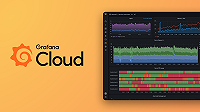Important: This documentation is about an older version. It's relevant only to the release noted, many of the features and functions have been updated or replaced. Please view the current version.
otelcol.receiver.otlp
otelcol.receiver.otlp accepts OTLP-formatted data over the network and
forwards it to other otelcol.* components.
NOTE:
otelcol.receiver.otlpis a wrapper over the upstream OpenTelemetry Collectorotlpreceiver. Bug reports or feature requests will be redirected to the upstream repository, if necessary.
Multiple otelcol.receiver.otlp components can be specified by giving them
different labels.
Usage
otelcol.receiver.otlp "LABEL" {
grpc { ... }
http { ... }
output {
metrics = [...]
logs = [...]
traces = [...]
}
}Arguments
otelcol.receiver.otlp doesn’t support any arguments and is configured fully
through inner blocks.
Blocks
The following blocks are supported inside the definition of
otelcol.receiver.otlp:
| Hierarchy | Block | Description | Required |
|---|---|---|---|
| grpc | grpc | Configures the gRPC server to receive telemetry data. | no |
| grpc > tls | tls | Configures TLS for the gRPC server. | no |
| grpc > keepalive | keepalive | Configures keepalive settings for the configured server. | no |
| grpc > keepalive > server_parameters | server_parameters | Server parameters used to configure keepalive settings. | no |
| grpc > keepalive > enforcement_policy | enforcement_policy | Enforcement policy for keepalive settings. | no |
| http | http | Configures the HTTP server to receive telemetry data. | no |
| http > tls | tls | Configures TLS for the HTTP server. | no |
| http > cors | cors | Configures CORS for the HTTP server. | no |
| debug_metrics | debug_metrics | Configures the metrics that this component generates to monitor its state. | no |
| output | output | Configures where to send received telemetry data. | yes |
The > symbol indicates deeper levels of nesting. For example, grpc > tls
refers to a tls block defined inside a grpc block.
grpc block
The grpc block configures the gRPC server used by the component. If the
grpc block isn’t provided, a gRPC server isn’t started.
The following arguments are supported:
| Name | Type | Description | Default | Required |
|---|---|---|---|---|
endpoint | string | host:port to listen for traffic on. | "0.0.0.0:4317" | no |
transport | string | Transport to use for the gRPC server. | "tcp" | no |
max_recv_msg_size | string | Maximum size of messages the server will accept. | "4MiB" | no |
max_concurrent_streams | number | Limit the number of concurrent streaming RPC calls. | no | |
read_buffer_size | string | Size of the read buffer the gRPC server will use for reading from clients. | "512KiB" | no |
write_buffer_size | string | Size of the write buffer the gRPC server will use for writing to clients. | no | |
include_metadata | boolean | Propagate incoming connection metadata to downstream consumers. | no |
tls block
The tls block configures TLS settings used for a server. If the tls block
isn’t provided, TLS won’t be used for connections to the server.
The following arguments are supported:
| Name | Type | Description | Default | Required |
|---|---|---|---|---|
ca_file | string | Path to the CA file. | no | |
ca_pem | string | CA PEM-encoded text to validate the server with. | no | |
cert_file | string | Path to the TLS certificate. | no | |
cert_pem | string | Certificate PEM-encoded text for client authentication. | no | |
include_system_ca_certs_pool | boolean | Whether to load the system certificate authorities pool alongside the certificate authority. | false | no |
key_file | string | Path to the TLS certificate key. | no | |
key_pem | secret | Key PEM-encoded text for client authentication. | no | |
max_version | string | Maximum acceptable TLS version for connections. | "TLS 1.3" | no |
min_version | string | Minimum acceptable TLS version for connections. | "TLS 1.2" | no |
cipher_suites | list(string) | A list of TLS cipher suites that the TLS transport can use. | [] | no |
reload_interval | duration | The duration after which the certificate is reloaded. | "0s" | no |
client_ca_file | string | Path to the TLS cert to use by the server to verify a client certificate. | no |
If reload_interval is set to "0s", the certificate never reloaded.
The following pairs of arguments are mutually exclusive and can’t both be set simultaneously:
ca_pemandca_filecert_pemandcert_filekey_pemandkey_file
If cipher_suites is left blank, a safe default list is used.
Refer to the Go Cipher Suites documentation for a list of supported cipher suites.
client_ca_file sets the ClientCA and ClientAuth to RequireAndVerifyClientCert in the TLSConfig.
Refer to the Go TLS documentation for more information.
keepalive block
The keepalive block configures keepalive settings for connections to a gRPC
server.
keepalive doesn’t support any arguments and is configured fully through inner
blocks.
server_parameters block
The server_parameters block controls keepalive and maximum age settings for gRPC
servers.
The following arguments are supported:
| Name | Type | Description | Default | Required |
|---|---|---|---|---|
max_connection_idle | duration | Maximum age for idle connections. | "infinity" | no |
max_connection_age | duration | Maximum age for non-idle connections. | "infinity" | no |
max_connection_age_grace | duration | Time to wait before forcibly closing connections. | "infinity" | no |
time | duration | How often to ping inactive clients to check for liveness. | "2h" | no |
timeout | duration | Time to wait before closing inactive clients that do not respond to liveness checks. | "20s" | no |
enforcement_policy block
The enforcement_policy block configures the keepalive enforcement policy for
gRPC servers. The server will close connections from clients that violate the
configured policy.
The following arguments are supported:
| Name | Type | Description | Default | Required |
|---|---|---|---|---|
min_time | duration | Minimum time clients should wait before sending a keepalive ping. | "5m" | no |
permit_without_stream | boolean | Allow clients to send keepalive pings when there are no active streams. | false | no |
http block
The http block configures the HTTP server used by the component. If the
http block isn’t specified, an HTTP server isn’t started.
The following arguments are supported:
| Name | Type | Description | Default | Required |
|---|---|---|---|---|
endpoint | string | host:port to listen for traffic on. | "0.0.0.0:4318" | no |
max_request_body_size | string | Maximum request body size the server will allow. | 20MiB | no |
include_metadata | boolean | Propagate incoming connection metadata to downstream consumers. | no | |
traces_url_path | string | The URL path to receive traces on. | "/v1/traces" | no |
metrics_url_path | string | The URL path to receive metrics on. | "/v1/metrics" | no |
logs_url_path | string | The URL path to receive logs on. | "/v1/logs" | no |
compression_algorithms | list(string) | A list of compression algorithms the server can accept. | ["", "gzip", "zstd", "zlib", "snappy", "deflate"] | no |
To send telemetry signals to otelcol.receiver.otlp with HTTP/JSON, POST to:
[endpoint][traces_url_path]for traces.[endpoint][metrics_url_path]for metrics.[endpoint][logs_url_path]for logs.
cors block
The cors block configures CORS settings for an HTTP server.
The following arguments are supported:
| Name | Type | Description | Default | Required |
|---|---|---|---|---|
allowed_origins | list(string) | Allowed values for the Origin header. | no | |
allowed_headers | list(string) | Accepted headers from CORS requests. | ["X-Requested-With"] | no |
max_age | number | Configures the Access-Control-Max-Age response header. | no |
The allowed_headers argument specifies which headers are acceptable from a
CORS request. The following headers are always implicitly allowed:
AcceptAccept-LanguageContent-TypeContent-Language
If allowed_headers includes "*", all headers are permitted.
debug_metrics block
The debug_metrics block configures the metrics that this component generates to monitor its state.
The following arguments are supported:
| Name | Type | Description | Default | Required |
|---|---|---|---|---|
disable_high_cardinality_metrics | boolean | Whether to disable certain high cardinality metrics. | true | no |
level | string | Controls the level of detail for metrics emitted by the wrapped collector. | "detailed" | no |
disable_high_cardinality_metrics is the Grafana Alloy equivalent to the telemetry.disableHighCardinalityMetrics feature gate in the OpenTelemetry Collector.
It removes attributes that could cause high cardinality metrics.
For example, attributes with IP addresses and port numbers in metrics about HTTP and gRPC connections are removed.
Note
If configured,
disable_high_cardinality_metricsonly applies tootelcol.exporter.*andotelcol.receiver.*components.
level is the Alloy equivalent to the telemetry.metrics.level feature gate in the OpenTelemetry Collector.
Possible values are "none", "basic", "normal" and "detailed".
output block
The output block configures a set of components to forward resulting telemetry data to.
The following arguments are supported:
| Name | Type | Description | Default | Required |
|---|---|---|---|---|
logs | list(otelcol.Consumer) | List of consumers to send logs to. | [] | no |
metrics | list(otelcol.Consumer) | List of consumers to send metrics to. | [] | no |
traces | list(otelcol.Consumer) | List of consumers to send traces to. | [] | no |
You must specify the output block, but all its arguments are optional.
By default, telemetry data is dropped.
Configure the metrics, logs, and traces arguments accordingly to send telemetry data to other components.
Exported fields
otelcol.receiver.otlp does not export any fields.
Component health
otelcol.receiver.otlp is only reported as unhealthy if given an invalid
configuration.
Debug information
otelcol.receiver.otlp does not expose any component-specific debug
information.
Debug metrics
otelcol_receiver_accepted_spans_total(counter): Number of spans successfully pushed into the pipeline.otelcol_receiver_refused_spans_total(counter): Number of spans that could not be pushed into the pipeline.rpc_server_duration_milliseconds(histogram): Duration of RPC requests from a gRPC server.rpc_server_request_size_bytes(histogram): Measures size of RPC request messages (uncompressed).rpc_server_requests_per_rpc(histogram): Measures the number of messages received per RPC. Should be 1 for all non-streaming RPCs.rpc_server_response_size_bytes(histogram): Measures size of RPC response messages (uncompressed).rpc_server_responses_per_rpc(histogram): Measures the number of messages received per RPC. Should be 1 for all non-streaming RPCs.
Example
This example forwards received telemetry data through a batch processor before finally sending it to an OTLP-capable endpoint:
otelcol.receiver.otlp "default" {
http {}
grpc {}
output {
metrics = [otelcol.processor.batch.default.input]
logs = [otelcol.processor.batch.default.input]
traces = [otelcol.processor.batch.default.input]
}
}
otelcol.processor.batch "default" {
output {
metrics = [otelcol.exporter.otlp.default.input]
logs = [otelcol.exporter.otlp.default.input]
traces = [otelcol.exporter.otlp.default.input]
}
}
otelcol.exporter.otlp "default" {
client {
endpoint = sys.env("OTLP_ENDPOINT")
}
}Technical details
otelcol.receiver.otlp supports gzip for compression.
Compatible components
otelcol.receiver.otlp can accept arguments from the following components:
- Components that export OpenTelemetry
otelcol.Consumer
Note
Connecting some components may not be sensible or components may require further configuration to make the connection work correctly. Refer to the linked documentation for more details.



